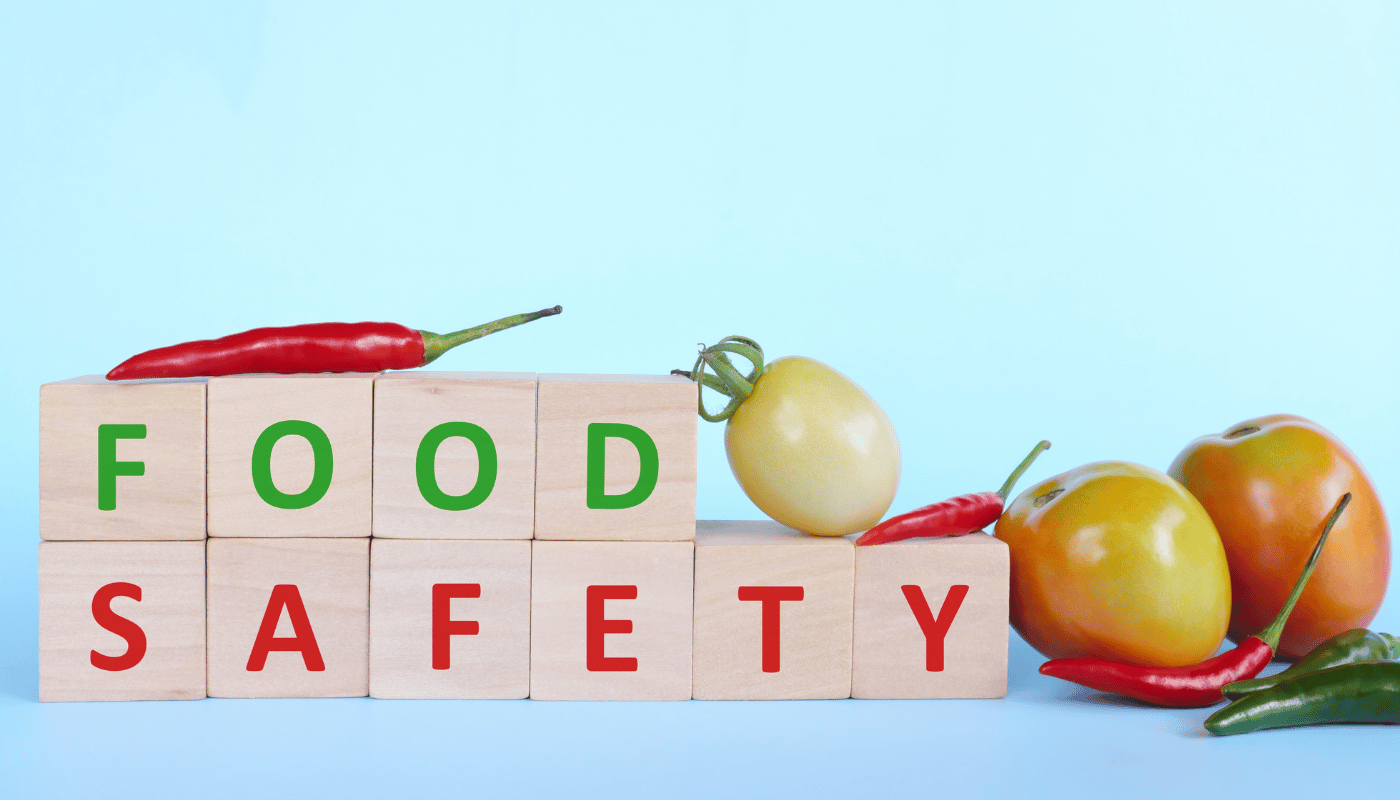When dining out, the safety of the food on your plate is paramount. But who ensures that restaurants adhere to the highest standards of food safety? Across the globe, various agencies play a pivotal role in maintaining these standards, but the specific organization responsible can vary by country. This article explores the key agency tasked with enforcing food safety in restaurants, highlighting its crucial role and how it operates to protect consumers from foodborne illnesses.
Food and Drug Administration (FDA)
The United States Food and Drug Administration (FDA) plays a pivotal role in ensuring the safety and quality of food served in restaurants across the country. As a regulatory body, the FDA is responsible for the oversight of food safety, which encompasses the inspection of food establishments, enforcement of food safety regulations, and the issuance of guidelines for restaurants to follow. The FDA’s regulations are designed to prevent foodborne illnesses by ensuring that foods are prepared, stored, and handled in ways that meet established safety standards.
One of the key resources provided by the FDA for restaurants is the Food Code. This comprehensive guide offers a model that state and local authorities can adopt to regulate and ensure food safety in retail and food service establishments, including restaurants. By adhering to the Food Code, restaurants help to protect the public from foodborne illnesses. The FDA also conducts research and outreach activities to improve food safety practices within the industry and works closely with local health departments to ensure compliance with national food safety standards.
Furthermore, the FDA’s role extends beyond regulation and guidance. It also involves responding to foodborne illness outbreaks by working with the Centers for Disease Control and Prevention (CDC) and state health departments to investigate the source and to implement measures to prevent further cases. Through its comprehensive approach to food safety, the FDA seeks to safeguard the health of the American public by reducing the risks associated with food consumption in restaurants.
| Function | Resource | Impact |
|---|---|---|
| Regulation Enforcement | Food Code | Prevents foodborne illnesses |
| Inspection | Restaurant Inspections | Ensures compliance with safety standards |
| Guidance Provision | Guidelines and Best Practices | Improves food safety practices |
| Outbreak Response | Investigation and Control | Minimizes public health risks |
| Research and Development | Food Safety Improvements | Advances in food safety science |
Which Agency Enforces Food Safety in Restaurants: Unveiled Secrets
Ensuring the safety of food in restaurants is a critical aspect of public health. In the United States, the primary responsibility for enforcing food safety regulations in restaurants falls on local health departments. These entities operate under state and federal guidelines to ensure that restaurants adhere to the highest standards of food handling, preparation, and storage. However, the landscape of food safety enforcement is not limited to local health departments alone. The Food and Drug Administration (FDA) plays a significant role in establishing food safety standards, which are then implemented and enforced at the local level. Additionally, the Centers for Disease Control and Prevention (CDC) contributes by monitoring foodborne illness outbreaks and providing essential data and guidance to both the public and the food industry.
At the core of food safety enforcement is the FDA’s Food Code, a model that represents a consensus on food safety standards. Local jurisdictions may adopt this code in part or in full, tailoring their enforcement and inspection practices to meet community needs and resources. Inspections are a key component of enforcement, with inspectors evaluating restaurants on a variety of criteria, including employee hygiene, food temperature control, and cross-contamination prevention. It is through these meticulous inspections that food safety agencies can identify potential risks and take corrective actions to protect public health.
While the role of these agencies is paramount, the responsibility for food safety also rests on the shoulders of the restaurants themselves. Establishments must ensure that their staff are adequately trained in food safety practices and that their operations comply with the latest regulations. This collaborative effort between regulatory agencies and restaurants is essential for minimizing the risk of foodborne illnesses and ensuring that dining experiences remain safe and enjoyable for everyone.
Key Components of Food Safety Enforcement
- Local health department inspections and regulations
- FDA’s Food Code as a foundational guideline
- The role of the CDC in monitoring and preventing foodborne illnesses
- Regular training and certification for restaurant staff on food safety
- Community-based approaches to tailor food safety practices to local needs
Understanding the FDA’s Food Code
The FDA’s Food Code is a comprehensive model that outlines the best practices for safeguarding public health and ensuring food is unadulterated and honestly presented when offered to the consumer. It serves as a scientific guide for food safety regulation and provides a framework for local and state governments to develop and manage their food safety programs effectively. Through the adoption and implementation of the Food Code, restaurants and food establishments are better equipped to prevent foodborne illnesses, ultimately leading to safer food for everyone.
U.S. Department of Agriculture (USDA)
The U.S. Department of Agriculture (USDA) plays a pivotal role in maintaining food safety standards, particularly in the realm of meat, poultry, and processed egg products. The agency’s jurisdiction encompasses ensuring that these food products are safe, wholesome, and correctly labeled and packaged. The USDA implements rigorous inspection and regulatory measures to prevent foodborne illnesses, promoting public health and consumer confidence in the U.S. food supply. Through its Food Safety and Inspection Service (FSIS), the USDA is responsible for the oversight of millions of food products that enter commerce annually.
Furthermore, the USDA engages in extensive research, education, and outreach activities to foster safe food handling practices among producers, processors, and the public. This holistic approach underscores the USDA’s commitment to safeguarding the nation’s food supply. By setting and enforcing standards, the USDA ensures that the integrity and quality of food products are maintained, thereby protecting consumers from potential hazards that could affect their health.
Key Functions of the USDA in Food Safety
The USDA’s role in food safety extends beyond inspection and regulation. The agency also provides critical data and guidance on food safety practices through its various programs and services. These efforts are aimed at reducing foodborne illness outbreaks and ensuring that the American food supply remains among the safest in the world.
| Function | Responsibility | Impact |
|---|---|---|
| Inspection | Overseeing meat, poultry, and egg products | Prevention of foodborne illnesses |
| Regulation | Setting and enforcing safety standards | Ensuring product quality and safety |
| Research | Advancing food safety technologies and practices | Improving industry and public health outcomes |
| Education | Providing resources on safe food handling | Reducing risk of illness in consumers |
| Outreach | Engaging with stakeholders across the food supply chain | Building a collaborative approach to food safety |
Centers for Disease Control (CDC)
The Centers for Disease Control and Prevention (CDC) plays a pivotal role in ensuring the safety of food served in restaurants across the United States. While the CDC does not directly enforce food safety regulations, it works closely with local, state, and national health departments to investigate foodborne illness outbreaks. The agency is instrumental in identifying the source of such outbreaks, whether they stem from a single restaurant or are part of a larger, multi-state concern linked to contaminated food products. Through these investigations, the CDC provides critical data and recommendations that inform public health policies and food safety practices.
One of the key functions of the CDC is to monitor and prevent foodborne diseases through its surveillance networks, such as the Foodborne Diseases Active Surveillance Network (FoodNet) and the OutbreakNet Team. These networks enable the CDC to track the incidence of infections transmitted through food, identify emerging pathogens, and swiftly respond to outbreaks. The insights gained from this surveillance are fundamental in developing strategies to prevent foodborne illnesses, thereby enhancing the safety of food in restaurants. Moreover, the CDC offers resources and guidance to both the public and health professionals on how to handle and prevent foodborne diseases effectively.
In addition to its surveillance and advisory roles, the CDC conducts research to better understand the epidemiology of foodborne illnesses. This research is critical in developing more effective food safety standards and interventions that can be applied across the food industry, including restaurants. The CDC’s comprehensive approach to managing food safety underscores the importance of collaboration among various stakeholders to protect public health.
- Foodborne Diseases Active Surveillance Network (FoodNet)
- OutbreakNet Team
- Foodborne illness outbreak investigations
- Guidance on handling and preventing foodborne diseases
- Research on foodborne illness epidemiology
State and Local Health Departments
The enforcement of food safety in restaurants is primarily the responsibility of state and local health departments. These agencies play a crucial role in inspecting dining establishments to ensure they comply with public health standards and regulations. Their activities include routine inspections, complaint investigations, and providing educational resources to restaurant owners and staff about safe food handling practices.
One of the key aspects of their work is the issuance of health permits, a critical step for any restaurant before it opens its doors. These permits signify that the establishment has met the specific health and safety criteria required by the local jurisdiction. Moreover, health departments have the authority to enforce corrective actions, which can range from issuing warnings and fines to temporarily shutting down a restaurant until it meets the necessary standards.
The effectiveness of these departments is evident in their ability to rapidly respond to foodborne illness outbreaks. By conducting thorough investigations and implementing control measures, they play a pivotal role in protecting public health. Their efforts not only ensure the safety of food served in restaurants but also contribute to raising awareness about foodborne illnesses and how they can be prevented.
| Function | Responsibility | Outcome |
|---|---|---|
| Inspections | Ensure compliance with health standards | Safe dining environment |
| Issuance of Health Permits | Verify establishment meets safety criteria | Permission to operate |
| Investigation of Complaints | Address public concerns about food safety | Immediate corrective actions |
| Educational Resources | Inform about safe food handling | Reduced risk of foodborne illness |
| Enforcement Actions | Correct violations | Compliance with health standards |
Understanding the role of state and local health departments provides valuable insights into the complex nature of food safety enforcement in restaurants. These agencies are the frontline defenders of public health, employing a variety of strategies to ensure that food service establishments adhere to the highest standards. Their unwavering commitment to safeguarding consumer health is a testament to the importance of their mission.
Additional Insights on State and Local Health Departments
The collaboration between restaurant owners and health departments is essential for maintaining a safe dining experience. This partnership is fostered through regular inspections and open communication, ensuring that any issues are promptly addressed. Furthermore, many health departments offer training programs and resources to help restaurants stay informed about the latest food safety practices and regulations. This proactive approach not only helps prevent foodborne illnesses but also supports the overall success of the food service industry.
In addition to their regulatory role, state and local health departments serve as a valuable resource for the public, offering guidance on selecting safe dining options and reporting concerns. Their efforts to educate both consumers and businesses about food safety contribute to a culture of health and wellbeing that benefits everyone. The ongoing challenges presented by emerging pathogens and changing regulations highlight the dynamic nature of their work and the critical importance of their mission in protecting public health.
Food Safety and Inspection Service (FSIS)
The United States Department of Agriculture (USDA) oversees a crucial component within the realm of food safety through the Food Safety and Inspection Service (FSIS). This agency is primarily tasked with ensuring that the nation’s commercial supply of meat, poultry, and egg products is safe, wholesome, and correctly labeled and packaged. FSIS employs a rigorous approach to safeguard public health, including the development and enforcement of food safety regulations, conducting inspections in slaughterhouses and processing plants, and overseeing recalls of products that fail to meet safety standards.
Through its comprehensive inspection and testing programs, FSIS plays a pivotal role in preventing foodborne illnesses. Their field operations ensure that establishments comply with required U.S. food safety standards, significantly minimizing the risks associated with the consumption of meat, poultry, and egg products. Moreover, FSIS’s commitment to science-based policies and its collaboration with other federal agencies, such as the Centers for Disease Control and Prevention (CDC) and the Food and Drug Administration (FDA), strengthen the nation’s food safety system.
FSIS is also at the forefront of educating consumers about the importance of safe food handling practices. Through its outreach programs, the agency provides valuable resources to help individuals prepare food safely at home, further reducing the likelihood of foodborne illnesses.
| Function | Scope | Key Activities |
|---|---|---|
| Inspection | Meat, Poultry, Egg Products | Conducts routine inspections in processing plants |
| Regulation Enforcement | Nationwide | Implements food safety regulations |
| Recall Oversight | Commercial Products | Oversees recalls of unsafe food products |
| Consumer Education | General Public | Provides resources on safe food handling |
| Collaboration | Interagency | Works with CDC, FDA for food safety |
The Food Safety and Inspection Service (FSIS) is a cornerstone in the United States’ efforts to protect public health related to the consumption of meat, poultry, and egg products. By enforcing stringent food safety regulations, conducting thorough inspections, and fostering public education on food safety, FSIS ensures that the American food supply remains one of the safest in the world. Through its unwavering commitment to food safety, FSIS not only safeguards the health of millions of Americans but also bolsters consumer confidence in the food industry.
In conclusion, understanding the role and responsibilities of the Food Safety and Inspection Service (FSIS) is essential for anyone involved in the food industry, as well as for consumers seeking to make informed choices about their food. By adhering to the guidelines and regulations set forth by FSIS, we can all contribute to a safer, healthier food system.

Seasoned writer and casino expert with over eight years of experience in the gambling industry. Specializing in online casino reviews, game strategies, and industry trends, Nathan provides in-depth insights that help players make smart decisions. His work is known for its clarity and thoroughness, making complex topics accessible to both novice and experienced players.







